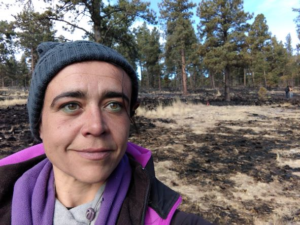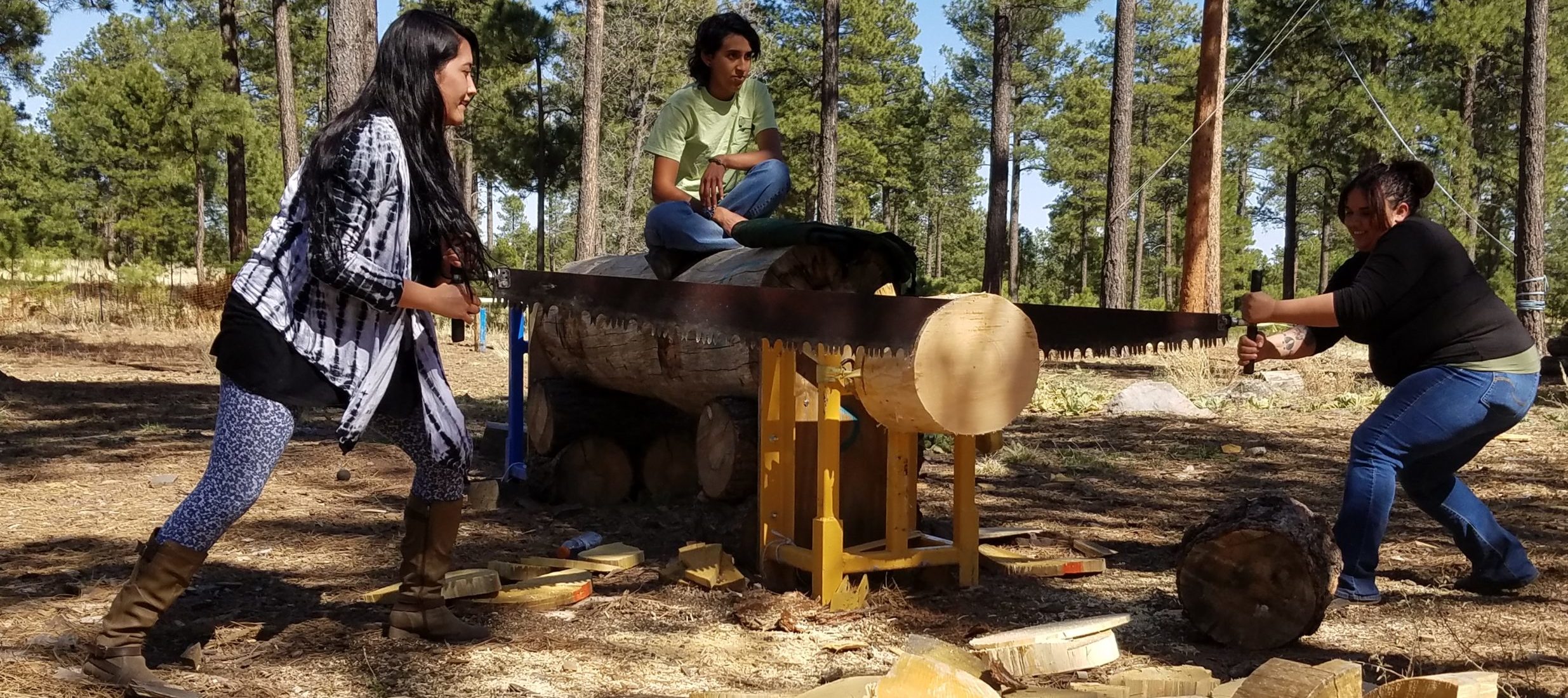
Dr. Blanca Céspedes
Hermits Peak and Calf Canyon Fires show need for more women in fields like firefighting
February 2, 2023
According to Dr. Blancas Céspedes, gender discrimination is a widespread problem in academia, and when it comes to fire and forest management, it can be a barrier for women entering those fields. Only four percent of firefighters are women due to gendered stereotypes about strength and stamina.
“This fall semester, after being so close to the fire, women better understand how much they are needed in this profession,” Céspedes said. “Several students attended specific fire training this summer and fall, and many of our women students are very active this semester so I think there is new interest.”
In addition to serving as Chair of the Forestry Department, Céspedes is co-principal investigator of NMHU’s prestigious CREST Forest Restoration Triangle grant issued by the National Science Foundation. As an expert in Environmental Science, her research for the past twenty years has focused on prescribed fire, fire ecology, and the effects of climate change on various ecosystems. Céspedes brings this expertise to the CREST program and Forestry Department to guide students in their research about regeneration and restoration.
“Normally, when I teach Terrestrial Ecology, which is a core class of the Forestry Department, a maximum of twenty percent of the students are women, and that percentage is even lower in the senior classes,” Céspedes said. “That’s why I try to promote women in fire, because it is a question of having role models. For example, I had a student tell me that if she hadn’t seen me and Dr. Julie Tsatsaros listed as professors in the Forestry Department, she would not have enrolled because she thought forestry was for men.”
Céspedes said she sees things changing, and particularly following the fires last spring. Céspedes was honored early in 2022 by the New Mexico State Division for International Day of Women and Girls in Science, and the recognition helped her understand the importance of serving as a role model in the sciences. And although she is eager to see more women pursue professional careers fire and forest management, Céspedes believes it is society that will benefit the most from women’s contributions.
“Women provide another perspective to approaching problems, and it’s not just gender diversity, but including minorities and other cultures gives us different perspectives, too. Having different points of view in fire and adaptive forest management helps us to make better decisions,” Céspedes said. “I think Highlands can really make a difference with leadership by women in the sciences.”

